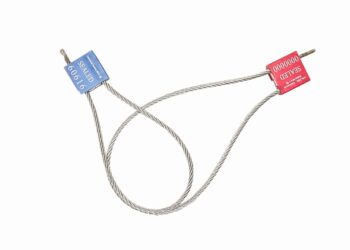ISO 17712 is an international standard that specifies requirements for mechanical seals used on containers to prevent unauthorized access and tampering during transit. The certification ensures the integrity and security of cargo shipments, especially in the context of international trade, where the safety and protection of goods are paramount. In this article, we will explore the significance and process of obtaining ISO 17712 certification in India.
Understanding ISO 17712 Certification:
ISO 17712 is developed by the International Organization for Standardization (ISO) and is recognized globally. The certification sets forth specific criteria for seal manufacturers and seal users to comply with in order to achieve a high level of security for containerized cargo. The standard has three main categories of seals, namely “Indicative Seals,” “Security Seals,” and “High-Security Seals.” Each category corresponds to a different level of security, and the choice depends on the specific requirements of the shipment.
Importance of ISO 17712 Certification:
Obtaining ISO 17712 certification holds great importance for businesses involved in international trade and logistics. It provides several key benefits:
a) Enhanced Security: The certification ensures that the seals used on containers are tamper-evident and can detect any unauthorized access or tampering during transit. This minimizes the risk of theft, pilferage, and counterfeiting of goods, giving businesses and customers greater peace of mind.
b) International Acceptance: ISO 17712 is recognized and accepted worldwide, making it easier for businesses to engage in cross-border trade without facing unnecessary hurdles or inspections.
c) Compliance with Regulations: Many countries and international trade organizations mandate the use of ISO 17712-certified seals for cargo shipments. Complying with this standard ensures adherence to relevant regulations, preventing delays and potential penalties.
d) Reputation and Credibility: ISO 17712 certification enhances a company’s reputation as a trustworthy and reliable partner in the supply chain. It demonstrates a commitment to maintaining the highest security standards.
ISO 17712 Certification Process in India:
The process of obtaining ISO 17712 certification in India involves several steps:
a) Identifying the Type of Seal: The first step is to determine the appropriate category of seal required for the specific cargo. This depends on the level of security needed and the nature of the goods being transported.
b) Choosing a Certified Manufacturer: Businesses must procure seals from manufacturers who are ISO 17712 certified. This ensures that the seals meet the standard’s requirements and are of high quality.
c) Conducting Seal Tests: Before using the seals on actual shipments, businesses need to conduct seal tests to ensure they function correctly and are tamper-evident.
d) Documentation and Compliance: Detailed documentation of the seal’s specifications, usage, and handling procedures must be maintained to demonstrate compliance with ISO 17712.
e) Third-Party Auditing: An independent certification body conducts an audit to verify compliance with ISO 17712 standards. The auditor assesses the organization’s procedures, seals used, and overall security measures.
f) Certification Issuance: Upon successful completion of the audit and meeting all requirements, the organization is awarded ISO 17712 certification.
Conclusion:
ISO 17712 certification plays a critical role in ensuring the security and integrity of cargo shipments in the international trade landscape. Businesses in India that deal with containerized goods must recognize the significance of this certification and take steps to obtain it. By doing so, they not only secure their shipments but also gain a competitive advantage in the global market by showcasing their commitment to adhering to the highest security standards. ISO 17712 certification is a testament to a company’s dedication to providing reliable and secure services to its customers, fostering trust and credibility in the ever-evolving world of international trade.












